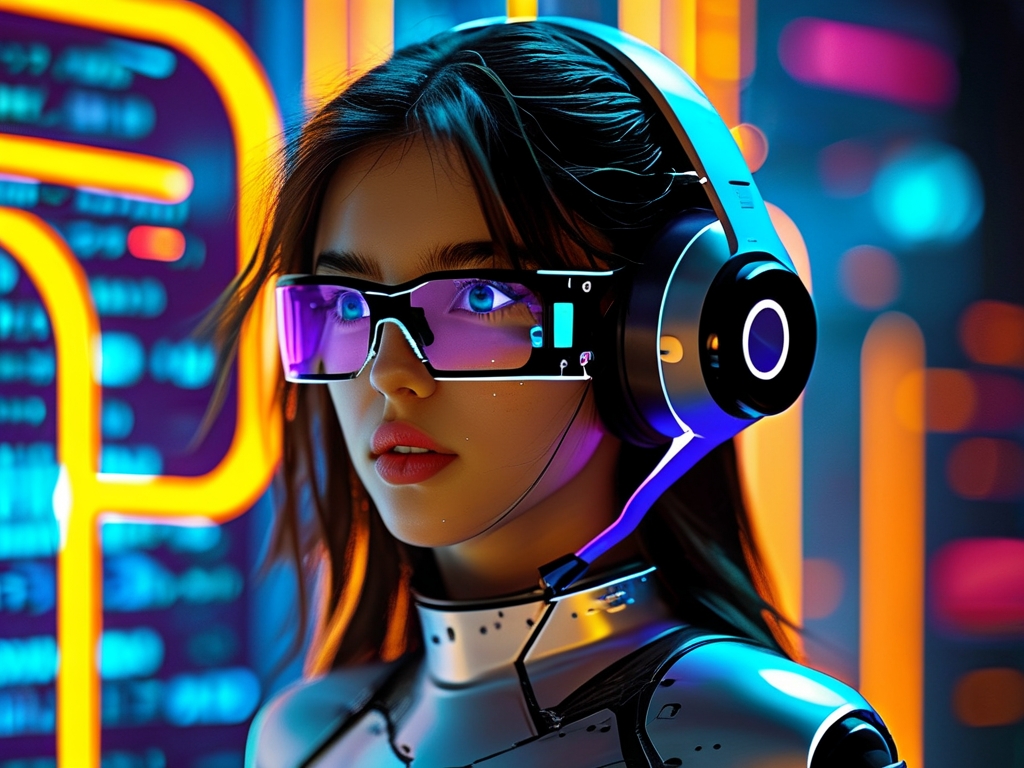In the rapidly evolving landscape of artificial intelligence, the role of an AI Language Algorithm Engineer has emerged as one of the most critical and interdisciplinary professions. Combining expertise in computer science, linguistics, and machine learning, these engineers are at the forefront of developing systems that enable machines to understand, generate, and interact with human language. This article explores the responsibilities, skills, and challenges faced by AI language algorithm engineers, as well as their impact on industries ranging from healthcare to entertainment.

What Does an AI Language Algorithm Engineer Do?
AI language algorithm engineers design, train, and optimize models that process natural language. Their work spans tasks such as speech recognition, machine translation, sentiment analysis, and conversational AI. For example, they might develop algorithms for virtual assistants like Siri or Alexa, improve search engine query understanding, or create tools for real-time translation apps. A significant part of their role involves working with large datasets to train neural networks, fine-tuning parameters to enhance accuracy, and addressing biases in language models.
These engineers often collaborate with cross-functional teams, including data scientists, product managers, and linguists, to ensure that AI systems align with user needs and ethical standards. They also stay updated on advancements in transformer-based architectures (e.g., GPT-4, BERT) and experiment with techniques like reinforcement learning or few-shot learning to push the boundaries of what language models can achieve.
Core Skills and Educational Background
To thrive in this field, professionals need a strong foundation in programming (Python, TensorFlow, PyTorch) and mathematics (linear algebra, calculus, probability). A deep understanding of natural language processing (NLP) concepts—such as tokenization, attention mechanisms, and sequence modeling—is essential. Many AI language algorithm engineers hold advanced degrees in computer science, computational linguistics, or related fields.
However, technical skills alone are insufficient. Linguistic knowledge is equally critical. Engineers must grasp syntax, semantics, and pragmatics to design models that interpret context, sarcasm, or cultural nuances. For instance, training a model to detect hate speech requires an awareness of how language evolves across regions and demographics. Soft skills like problem-solving and communication are also vital, as engineers must explain complex algorithms to non-technical stakeholders.
Industry Applications and Innovations
The applications of AI language algorithms are vast. In healthcare, models analyze medical records or assist in diagnosing mental health conditions through language patterns. In customer service, chatbots handle inquiries while mimicking human empathy. Meanwhile, content creation tools like ChatGPT or Jasper.ai rely on language algorithms to generate marketing copy, stories, or code snippets.
One groundbreaking innovation is the development of multilingual models capable of understanding dozens of languages with minimal training data. This has profound implications for global communication, education, and accessibility. For example, AI-powered translation devices are breaking language barriers in real-time, empowering travelers and businesses alike.
Ethical Challenges and Responsibility
AI language algorithm engineers face ethical dilemmas daily. Biases embedded in training data can lead to discriminatory outcomes, such as gender stereotypes in job recommendation systems or racial biases in sentiment analysis. Engineers must implement fairness checks, diversify datasets, and adopt transparent model evaluation practices.
Moreover, the rise of deepfakes and AI-generated misinformation highlights the dual-use nature of language models. Engineers are increasingly tasked with building safeguards—like watermarking AI-generated text—to prevent malicious use. Regulatory frameworks, such as the EU’s AI Act, further emphasize the need for accountability in algorithm design.
The Future of AI Language Engineering
As language models grow more sophisticated, the demand for skilled engineers will surge. Emerging trends include energy-efficient AI to reduce computational costs and personalized language models tailored to individual user styles. Interdisciplinary collaboration will expand, blending neuroscience-inspired architectures with linguistic theories.
Ultimately, AI language algorithm engineers are not just coders—they are pioneers shaping how humanity interacts with technology. Their work will redefine education, creativity, and global connectivity, making this career path both challenging and profoundly rewarding.
How to Start Your Journey
Aspiring engineers should begin by mastering NLP fundamentals through online courses (e.g., Coursera’s NLP Specialization) and hands-on projects, such as building a sentiment analysis tool or a chatbot. Participating in open-source communities like Hugging Face or Kaggle competitions can provide practical experience. Networking with professionals via conferences (e.g., ACL, NeurIPS) and staying curious about linguistic diversity will further accelerate growth.
In , the role of an AI language algorithm engineer sits at the intersection of innovation and responsibility. By advancing how machines comprehend human language, these professionals are not only solving technical puzzles but also fostering a more inclusive and connected world.



